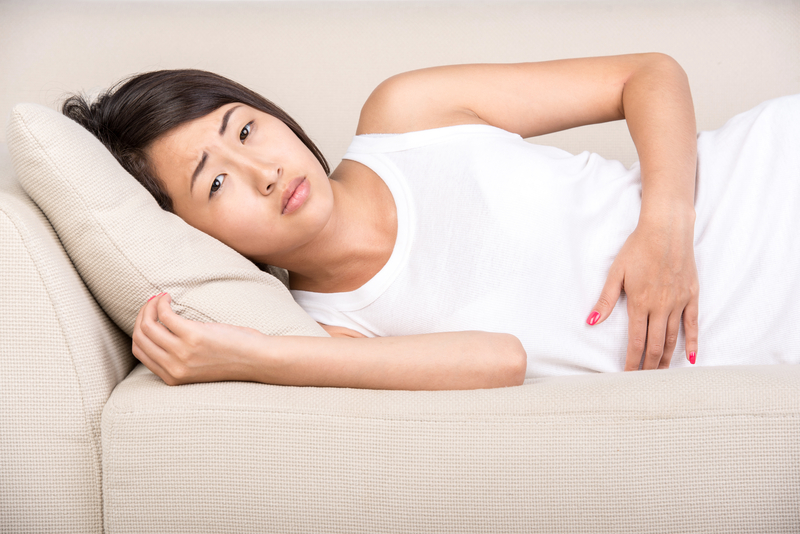Perhaps one of the most common symptoms of PMS is the menstrual cramp. Menstrual cramps can vary in intensity from woman to woman, with some women finding cramps uncomfortable, but unchanging to their daily routine.
For others, cramping during or before their period can be so severe, they miss school or work. If you find you are unable to participate the way you normally would because your cramps are too painful, then you should visit with your PGOMG provider to discuss your symptoms.
For those who are able to function relatively normally, but would still prefer to relieve cramps as opposed to just “dealing with them,” we have three game-changing suggestions on how to kick your monthly menstrual cramps to the curb.
- Apply gentle heat.
There’s a reason why those hot water bottles are still a popular go-to for women on their period. When heat is applied to your lower abdomen, it can help relieve the pain and discomfort caused by cramps. Heating pads typically used for back or shoulder pain can also be used for this purpose. Or, if you prefer, taking a warm bath can sooth cramps and relieve stress or mood swings often associated with menstruation.
- Stretch it out.
Exercise is always a viable option to help relieve cramping, but sometimes the idea of going for a walk or hitting the gym can seem particularly difficult during your period – you’re already tired, maybe moody or bloated, so why would exercise help? Well, it does help, a lot actually. Though for those who just can’t imagine switching into their sneakers then many doctors recommend a good stretch. Stretching and light yoga positions can help during cramping.
- Resist the junk food urge.
Menstrual periods have a long history of association with certain junk food cravings such as chocolate, caffeine, and foods with high sugar and fat content. Although comfort foods may provide the temporary satisfaction you crave during your period, they provide no real health benefit or relief for cramps. If you want to feel better during your period, it’s best to stay extra hydrated, get more sleep than you normally would, and avoid heavy foods that can add up to bloating, cramps, and an upset stomach.


